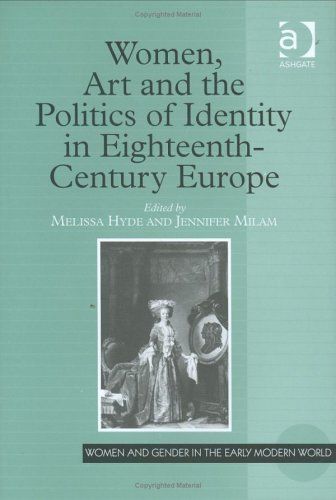
Women, Art and the Politics of Identity in Eighteenth-century Europe
This collection of new essays by specialist authors addresses women's activities as patrons and as patronized artists over the course of the eighteenth century. It provides a much needed examination, with admirable breadth and variety, of women's artistic production and patronage in Europe during the century.Some essays are concerned with how women's involvement in the arts allowed them to fashion identities for themselves (whether national, political, religious, intellectual, artistic, or gender-based) and how such self-fashioning in turn enabled them to negotiate or intervene in the public domains of culture and politics where The Woman Question was so hotly debated. Artists and patrons discussed include: Carriera; Queen Lovisa Ulrike and Chardin; the Bourbon Princesses Mlle Clermont, Mme Adélaïde and Nattier; the Duchess of Osuna and Goya; Mme de Pompadour; Marie-Antoinette and Vigée-Lebrun; Labille-Guiard; Queen Carolina of Naples, Prince Stanislaus Poniatowski of Poland and Kauffman; David and his students, Mesdames Benoist, Lavoisier and Mongez.